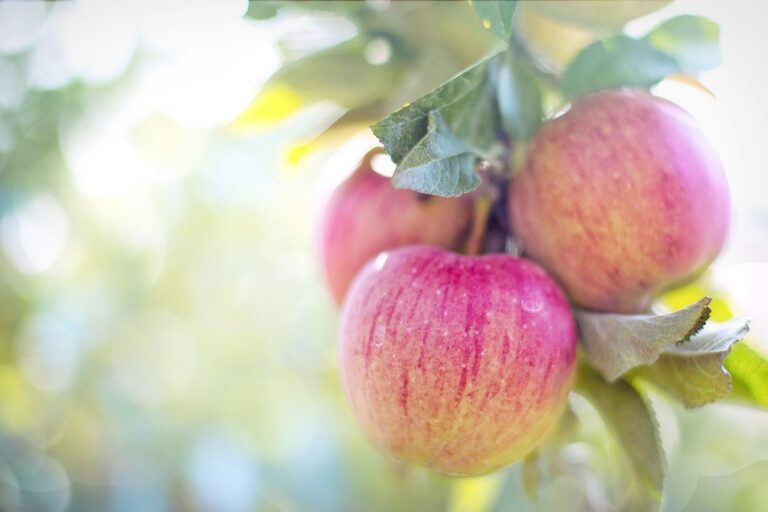Exploring Microbrewery Recipe Development: 11xplay registration, Laser 247com, Tiger exchange 247 vip login
11xplay registration, laser 247com, tiger exchange 247 vip login: Exploring Microbrewery Recipe Development
Hey there, beer enthusiasts! If you’re passionate about craft beer and have been thinking about trying your hand at developing your own microbrewery recipes, you’ve come to the right place. Crafting unique and delicious beers is an art form that requires creativity, patience, and attention to detail. In this blog post, we’ll take a deep dive into the world of microbrewery recipe development, sharing tips, tricks, and insights to help you brew up something special.
The Basics of Recipe Development
When it comes to developing a new microbrewery recipe, there are a few key factors to consider. Here are some essential elements to keep in mind as you embark on your brewing journey:
1. Style Selection: The first step in recipe development is deciding on the style of beer you want to brew. Whether you prefer a hoppy IPA, a rich stout, or a refreshing hefeweizen, choosing a style will help guide your ingredient selection and brewing process.
2. Ingredient Choices: Once you’ve chosen a beer style, it’s time to select your ingredients. From malts and hops to yeast and adjuncts, the ingredients you choose will impact the flavor, aroma, and appearance of your beer. Experimenting with different combinations and proportions can lead to exciting new flavor profiles.
3. Brewing Process: Developing a successful microbrewery recipe also involves fine-tuning your brewing process. Factors like mash temperature, hopping schedules, fermentation techniques, and aging methods can all influence the final outcome of your beer. Paying attention to these details is key to creating a high-quality brew.
4. Recipe Testing: Like any creative endeavor, recipe development is a process of trial and error. Don’t be afraid to experiment with different ingredients and techniques, and be open to feedback from others. Tasting your beer at various stages of the brewing process can help you make adjustments and refine your recipe.
5. Documentation: Keeping detailed notes throughout the recipe development process is crucial for replicating your success in the future. Record your ingredient quantities, brewing times, fermentation temperatures, and any other relevant information to create a comprehensive recipe that can be brewed consistently.
6. Feedback and Iteration: Finally, don’t hesitate to seek feedback from fellow brewers, friends, and customers. Their input can provide valuable insights and ideas for improving your recipes. Use this feedback to make iterative changes and continue refining your recipes over time.
Key Considerations for Recipe Development
As you venture into microbrewery recipe development, here are a few key considerations to keep in mind:
1. Ingredient Quality: Using high-quality ingredients is essential for creating great-tasting beer. Invest in fresh, locally sourced malts, hops, and yeast to ensure the best possible results.
2. Creativity and Innovation: Don’t be afraid to think outside the box and experiment with unique ingredients and brewing techniques. Innovation is key to setting your brewery apart from the competition.
3. Consistency: Maintaining consistency in your recipes is crucial for building a loyal customer base. Strive to brew your beers the same way each time to ensure a consistent flavor profile.
4. Market Research: Before finalizing a new recipe, it’s important to conduct market research to ensure there is demand for your beer style. Consider factors like consumer preferences, trends, and competition in the market.
5. Safety and Compliance: Be sure to follow all safety guidelines and regulations when developing and brewing your recipes. This includes proper sanitation practices, ingredient handling, and compliance with local brewing laws.
6. Have Fun: Most importantly, remember to have fun and enjoy the process of recipe development. Brewing beer is a creative and rewarding pursuit, so savor the journey and celebrate your successes along the way.
FAQs
Q: How long does it take to develop a new microbrewery recipe?
A: The timeline for developing a new microbrewery recipe can vary depending on the complexity of the beer style, the availability of ingredients, and the amount of testing and iteration required. On average, it can take anywhere from a few weeks to several months to finalize a new recipe.
Q: Can I create a successful microbrewery recipe without formal brewing training?
A: While formal brewing training can provide valuable knowledge and skills, it is possible to develop successful microbrewery recipes through self-study, experimentation, and hands-on experience. Many successful craft brewers have started out as homebrewers with no formal training.
Q: How can I differentiate my microbrewery recipes from the competition?
A: Differentiating your microbrewery recipes from the competition can be achieved through creativity, innovation, and quality. Experiment with unique ingredients, brewing techniques, and flavor profiles to create beers that stand out in a crowded market. Additionally, focusing on quality and consistency can help build a loyal customer base.
Q: What are some resources for learning more about microbrewery recipe development?
A: There are many resources available for learning more about microbrewery recipe development, including books, online courses, brewing forums, and industry events. Consider joining a local homebrewing club or reaching out to experienced brewers for advice and guidance.
Q: Can I sell my microbrewery recipes to other breweries?
A: Selling microbrewery recipes to other breweries is possible, but it requires careful consideration of intellectual property rights, licensing agreements, and business arrangements. Consulting with a legal professional or industry expert can help navigate the process of selling brewery recipes.
In conclusion, microbrewery recipe development is a rewarding and creative process that allows you to showcase your passion for craft beer. By following these tips and guidelines, you can create unique and delicious beers that will delight customers and set your brewery apart from the competition. So roll up your sleeves, fire up your brew kettle, and get ready to brew up something special. Cheers to your brewing success!







